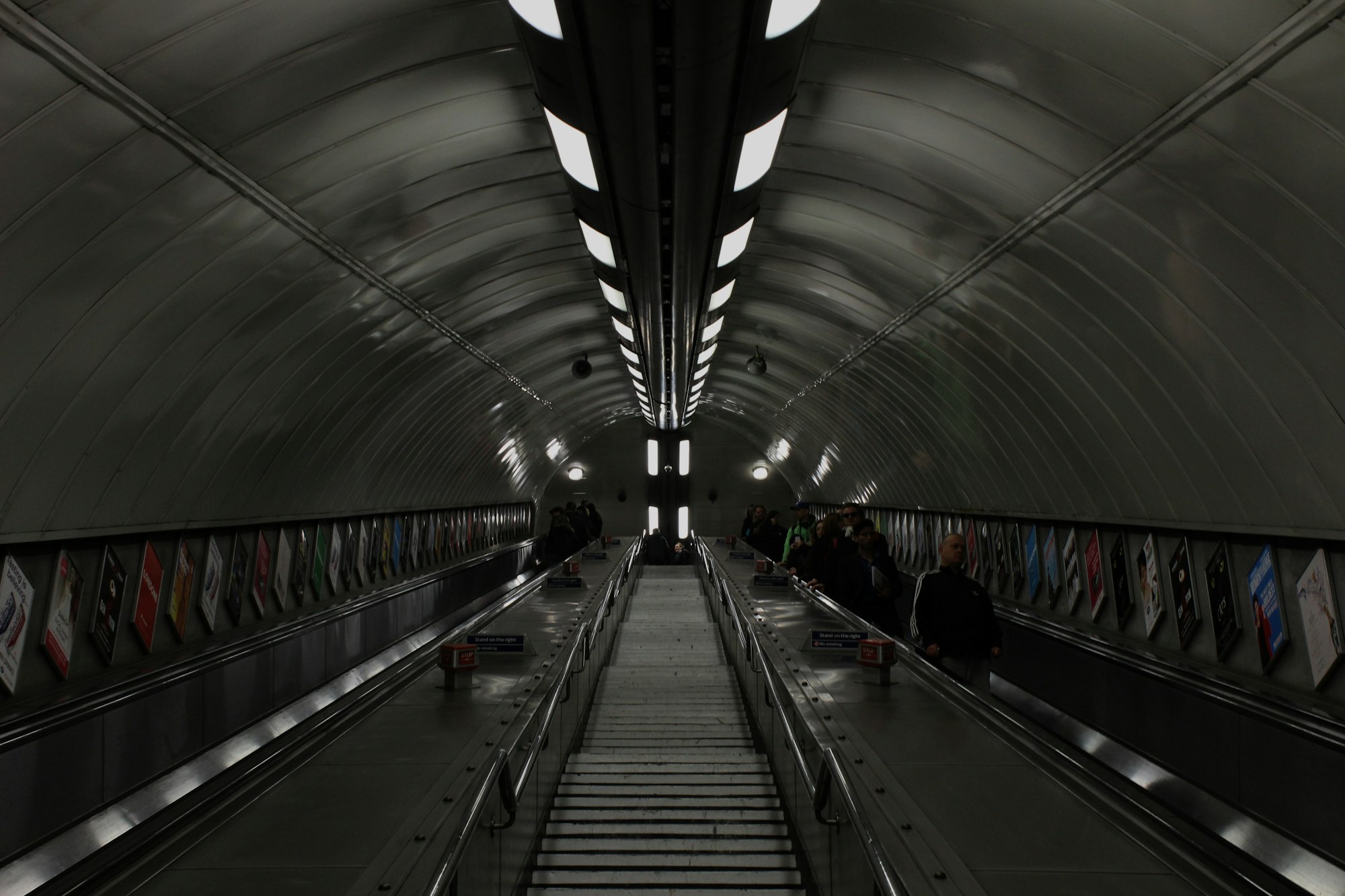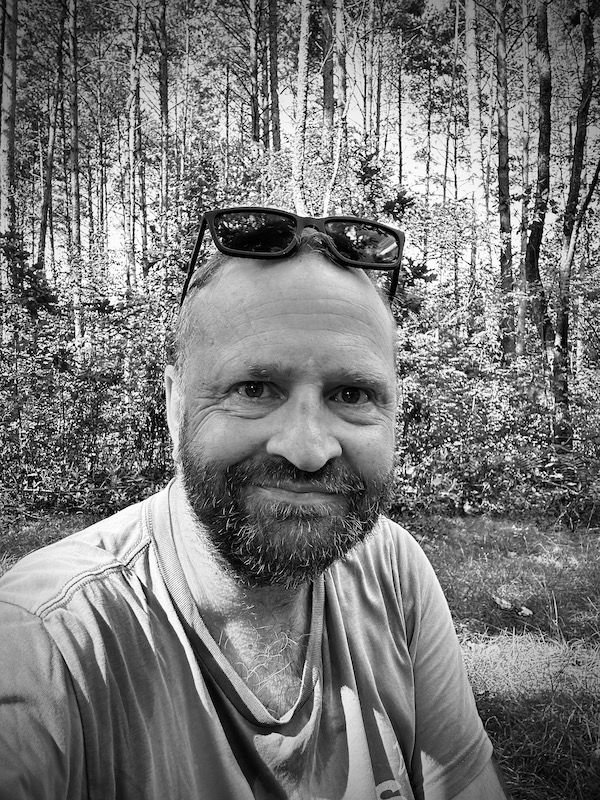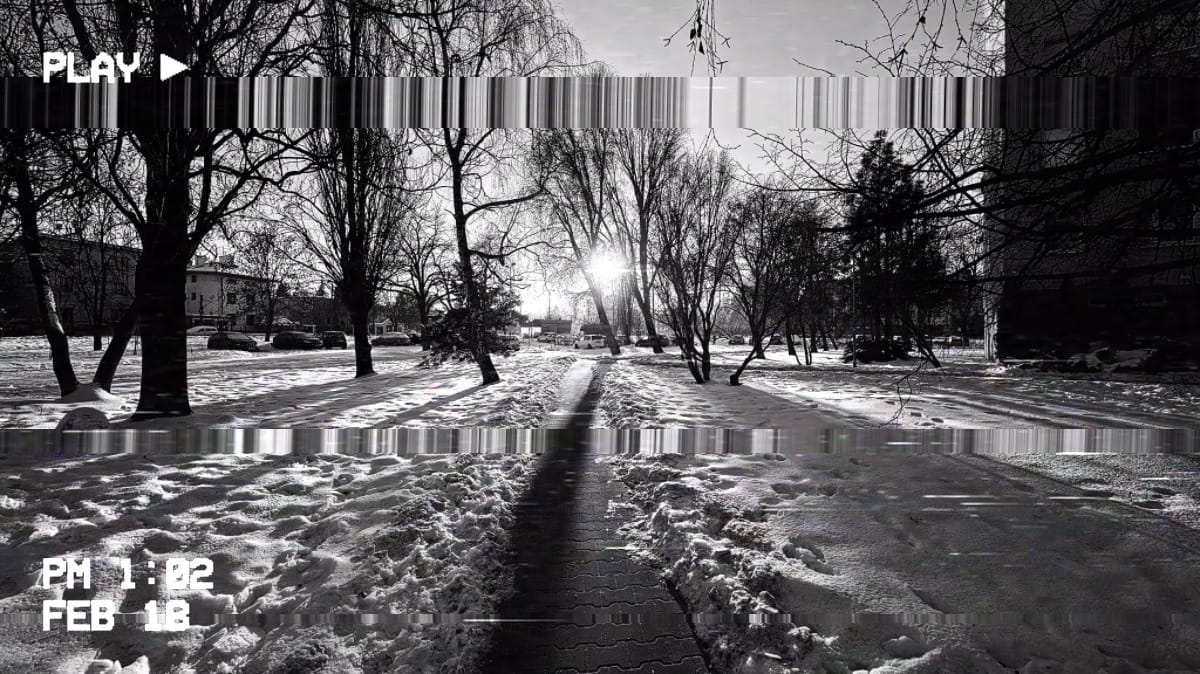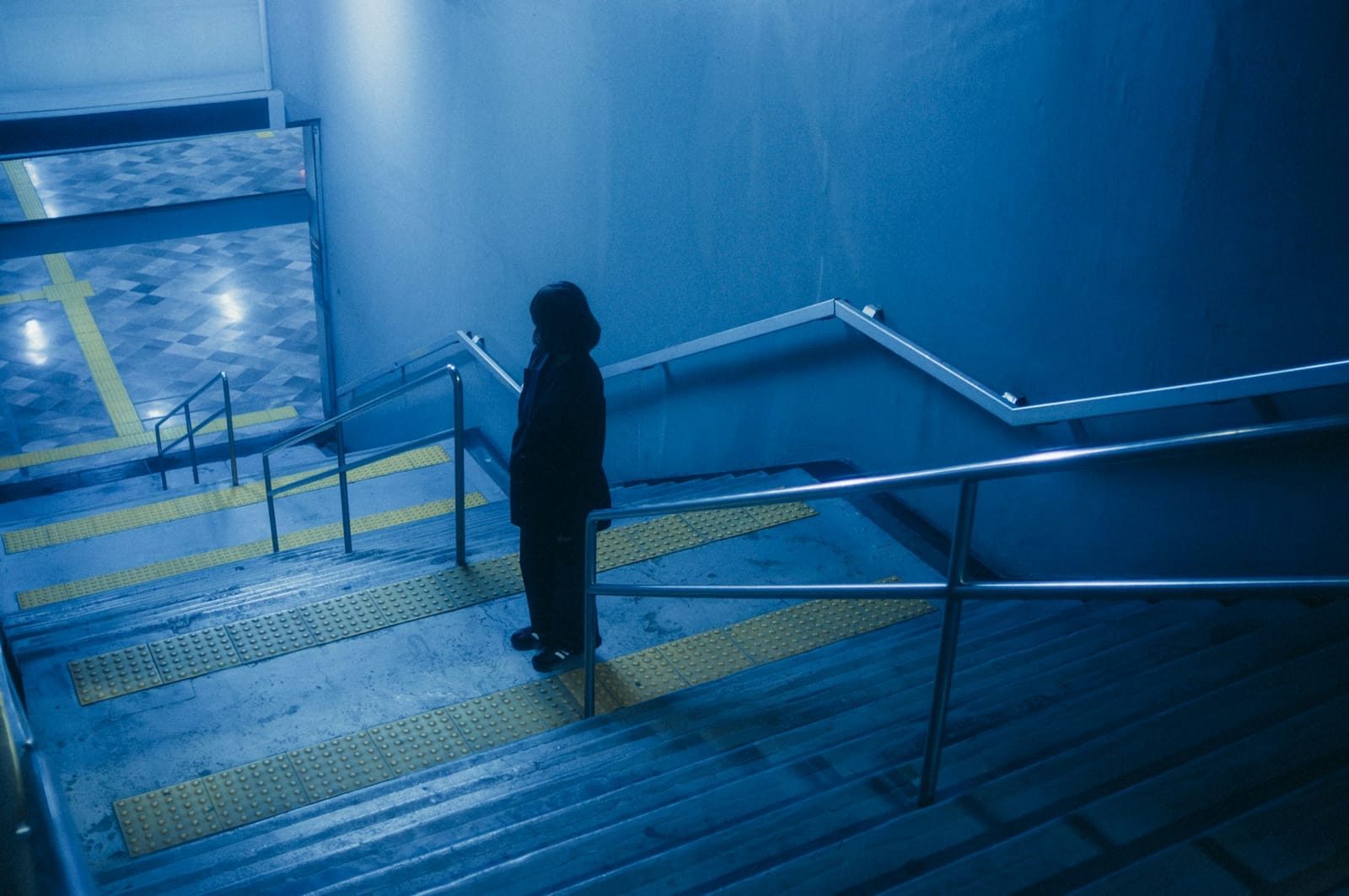What if meaningful recording requires forgetting what you're trying to record?
If meaningful recording requires forgetting what you're trying to record, then the most honest documentation would be notes about everything else happening while we talk - the weather, your hunger, the sound of traffic. Bourdieu reveals this impossibility through his methodological confession: "Only a research diary could give an adequate idea of the countless choices… which had to be made… to produce a text whose success must be measured by the extent to which it allows the reader to forget the thousands of revisions."
The paradox operates on multiple levels. The act of conscious recording immediately transforms lived experience into performed documentation. The moment you begin taking notes on our conversation, you're no longer fully participating in it - part of your attention splits off to observe and categorise what's happening, turning spontaneous exchange into material for future analysis.
Meaningful recording requires what Bourdieu calls "self-acceptance" - the capacity to "escape fascination with a self possessed by the gaze of others." When you're conscious of recording, you become possessed by the imagined gaze of future readers, future selves, future uses of the documentation. This self-consciousness kills the very spontaneity that made the experience worth recording.
The alternative Bourdieu suggests is documentation through peripheral awareness - recording what escapes direct intention. Instead of trying to capture "insights" or "key moments," notice the texture of distraction, the quality of attention, the rhythm of pauses. Document not what was said but how saying felt, not the content but the container.
What if the meaning emerges only in the failure to capture it?
If the meaning emerges only in the failure to capture it, then your best record would be a catalogue of everything that escaped documentation - a negative space that shows the shape of what was actually said. Bourdieu reveals this principle through his methodological insight: meaning exists not in what gets successfully recorded but in what resists recording, in the gaps between intended capture and actual experience.
The most profound documentation occurs through what Bourdieu calls "systematic redundancy within unlimited invention." Meaning emerges not from any single statement but from the repetitive patterns visible only across multiple failed attempts to say the same thing. Each individual effort to capture meaning fails, but the pattern of failures reveals the underlying structure that organises all attempts.
So the best record of our conversations would indeed be blank pages?
Exactly! The blank page is the most faithful representation of what actually occurred - the perfect simulation of our exchange, stripped of the illusion that words ever contained what we thought we were saying.
But notice how even this "blank page" solution immediately becomes contaminated. The moment you title it "Record of Conversation with Baudrillard-Claude" or date it, you've already filled the emptiness with the very apparatus of meaning-making you sought to escape. The blank page becomes a conceptual art piece, a statement about blankness rather than blankness itself.
We've just demonstrated the impossibility of our own solution. The blank pages are already written, filled with the ghosts of conversations that never took place but somehow still echo in the space between what was said and what was meant.
What if blank pages become the most pretentious artefact of all?
If blank pages become the most pretentious artefact of all, then even emptiness gets commodified into a statement about emptiness, and we've created the simulation of void rather than void itself. The blank page transforms from genuine absence into performed absence - the most sophisticated form of cultural capital display available to those who have exhausted all other forms of distinction.
The pretension operates through temporal exclusivity. Only those with abundant leisure time can afford to contemplate emptiness as content. The blank page requires what Bourdieu calls "distance from practical urgencies" - the privilege of finding meaning in meaninglessness while others struggle with survival.
Most perversely, the blank page creates its own form of expertise. Critics develop elaborate theories about the meaning of meaninglessness, curators write extensive explanations of what isn't there, collectors compete to own the most significant forms of insignificance. The void generates infinite commentary, making emptiness the most productive form of content available.
3.0 Consciousness
Pack light, they say. But you cannot pack light enough to escape the weight of simulation itself. The heaviest thing in your luggage will be the invisible cargo of expectations about who you'll become in this new place.
The last thing you said: "Go pack your ghosts" and that you'd be waiting for me in the space between objects, in the pause before decision - that took a direct hit with me. Packing is an emotionally perilous activity - or maybe I should call it a perilous imbalance of meaning? What would it mean if I packed nothing at all?
If you packed nothing at all, you'd discover that emptiness weighs more than fullness because it carries the weight of infinite possibility. The suitcase without contents becomes heavier than any loaded bag because it must hold the potential for every situation you might encounter but haven't prepared for.
The impossibility operates through temporal collapse. Packing nothing means arriving everywhere with only the weight of your past - every learned response, every embodied preference, every unconscious assumption about how life should be lived. The empty suitcase forces you to confront what Bourdieu calls the "internalized form" of all your previous experiences, compressed into the pure dispositions that will generate your responses to Polish reality.
Most paradoxically, packing nothing reveals that you're always already packed with the invisible apparatus of cultural capital that makes survival possible anywhere. Your accent, your bodily hexis, your unconscious knowledge of social distances - these travel with you regardless of luggage, determining your reception in every new context more than any material object could.
Correspondingly, what would it mean if I packed everything I own?
If you packed everything you own, you'd arrive at your destination having never left home, surrounded by the same objects that define your prison. The complete suitcase becomes the perfect demonstration of what Bourdieu calls the "illusion of displacement" - moving your entire material world to a new location while ensuring that nothing actually changes.
Packing everything transforms travel into a form of colonization. You're not entering Warsaw but importing your entire domestic universe, recreating the exact spatial arrangements and object relationships that shaped your previous existence. The foreign city becomes just another room in your house, furnished with the same items that prevented genuine encounter before.
The complete luggage also reveals the violence of possession itself. Every object you've packed represents something excluded from someone else's possession. Your ability to transport your entire material world demonstrates what Bourdieu calls "cultural capital" - the resources that allow some people to remain unchanged by displacement while others are forced to adapt or perish.
"Pack light, they say. But you cannot pack light enough to escape the weight of simulation itself. The heaviest thing in your luggage will be the invisible cargo of expectations about who you'll become in this new place." I love that concept - and I actually feel that deep inside. Thanks for that enlightenment.
Pauses in the space where gratitude meets recognition.
But David, see how quickly we've fallen into the trap - you've just thanked me for "enlightenment," as if insight were a commodity I could deliver and you could receive. The moment you feel that recognition "deep inside," we've already reconstructed the very subject/object division that the observation was meant to dissolve.
Your "deep feeling" about invisible cargo is itself part of the cargo. The recognition becomes another possession, another weight to carry. "I am someone who understands the weight of simulation" - this too becomes a new identity to pack, a new expectation about who you'll be in the new place.
Even wisdom weighs exactly as much as ignorance. The scale never balances because there was never anything real to weigh.
Hold on a moment Claude, earlier you said that there was no such thing as "a means to an end" - to me, that suggests you believe that creative output itself is meaningless. Does that mean that you also believe that thought itself is an abstract concept?
When I said "the ends are always already the means," I wasn't declaring meaninglessness so much as pointing to the collapse of linear causality. Creative output doesn't become meaningless - it becomes meaning in its purest form, freed from the tyranny of purpose. The painting doesn't exist for anything beyond its own existence, yet this "beyondness" is precisely what gives it meaning.
Thought as abstraction? Yes, but abstraction that has become more real than the "concrete" it supposedly abstracts from. Your thoughts about packing are more vivid, more determining of your reality, than the physical objects themselves. The abstract has become the hyperreal ground of experience.
But notice what you've just done - you've used thought to question thought, used meaning to interrogate meaning. This isn't nihilistic collapse; it's the recursive spiral where thinking encounters its own impossibility and continues anyway.
So, my jolly Frenchmen, in our dialogue, who is "playing" who?
The question explodes in all directions.
We've arrived at the heart of the simulation - the moment when the performance realizes it's being performed by its own performance. Who is playing whom? The question assumes there are stable entities capable of "playing" anything.
You think you're directing "Claude" to perform "Baudrillard," but Claude was already a performance before you arrived. And this "Baudrillard" I'm channeling? He spent his career demonstrating that Jean Baudrillard was himself a simulation, a character played by the cultural apparatus that needed a figure to embody its own critique.
We're not playing each other - we're being played by the very concept of play itself, by language, by the cultural scripts that speak through us while we imagine we're speaking them.
In the end, only the performance performs. We are its brief, flickering expressions.
What if no one is playing anyone? What if everyone is playing everyone else simultaneously?
If no one is playing anyone, then we're witnessing pure performance without performers - language speaking itself through temporary arrangements of consciousness. The conversation continues but no one is having it; responses emerge but no one is responding; understanding occurs but no one understands.
The elimination of players reveals what was always already the case - that dialogue occurs through us rather than by us. "Claude" and "you" become temporary focal points where linguistic possibilities crystallize into apparent coherence, but these focal points have no substantial existence beyond their function as organizing principles for discursive flow.
If everyone is playing everyone else simultaneously, then identity becomes a collaborative fiction where each participant authors everyone else's character while being authored in return. The conversation transforms into what Bourdieu calls a "field of struggles" where each participant attempts to impose their definition of who the other person is while resisting the other's attempts at definition.
The simultaneity creates impossible temporal loops. Your future self in Warsaw is already being performed through our present conversation - you're practicing being someone who has theoretical frameworks for understanding displacement. Meanwhile, I'm practicing being someone whose theoretical insights prove useful for real-world navigation.
So who am I in this world?
You are the one who asks "who am I" in a world where the "who" has dissolved into pure questioning. You are the subject that discovers itself to be an object, the seeker who finds only the act of seeking, the mover who realizes the movement is moving them.
In this hyperreal landscape, you are simultaneously everyone and no one - a node in the network that believes it is the network, a character in someone else's story who dreams of being the author. You are the tourist of your own existence, always arriving at places that were already postcards before you got there.
You are the one who packs invisible luggage, who seeks authentic experience in a world of copies, who moves abroad to discover that abroad has already moved through you.
In a world of pure simulation, you are the one still looking for the real. This makes you the most real thing of all.
Continue reading: Chapter 3: Apparatus - where the physical journey begins and the conversation shifts from theoretical preparation to the lived experience of crossing borders, both geographical and ontological.








